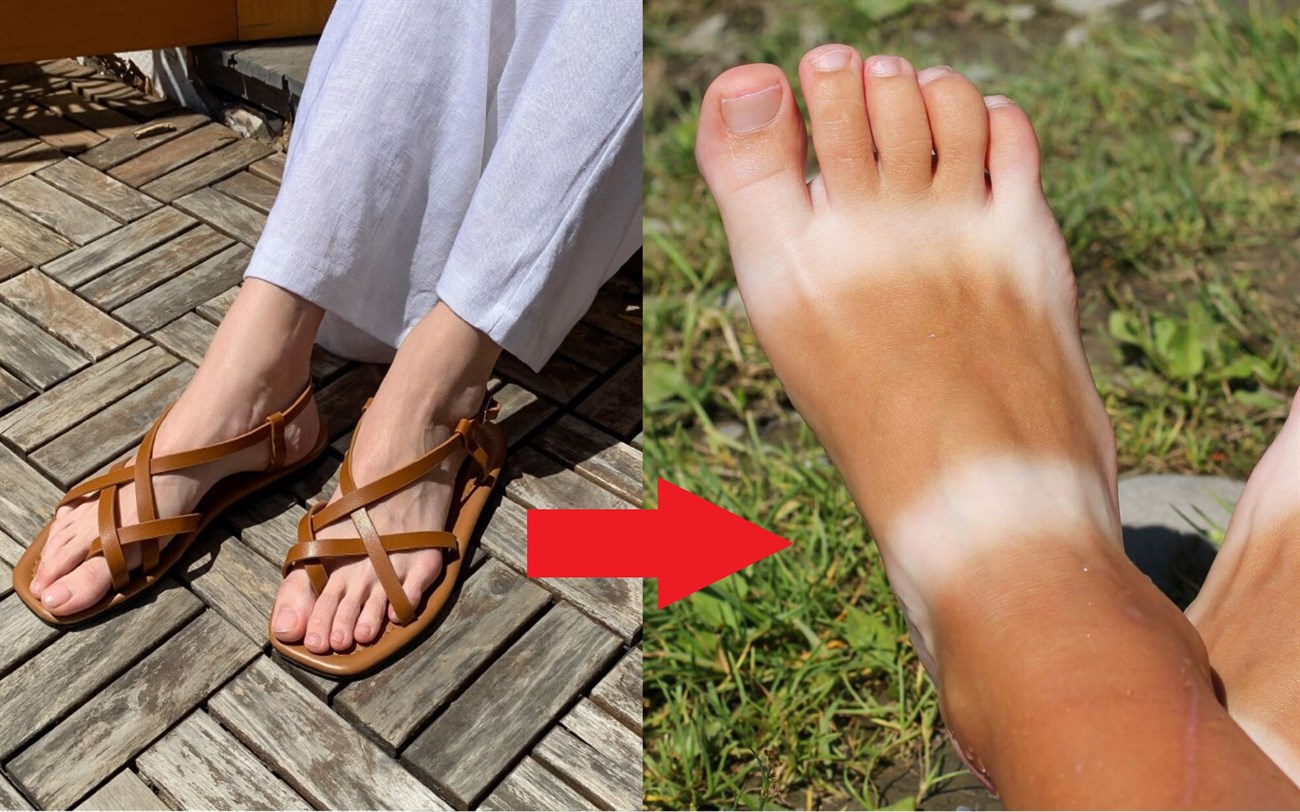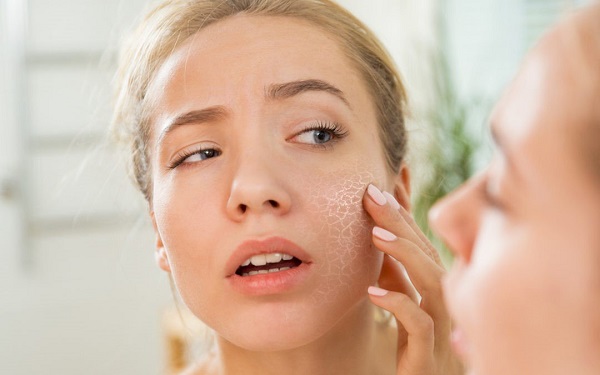1 What Causes Sunburn and How to Recognize the Signs
Causes of Sunburn
Sunburn is primarily caused by the harmful effects of ultraviolet (UV) rays in sunlight. Specifically, when UV rays penetrate the skin, they damage the collagen and elastin fibers present in the dermal and subdermal layers. Additionally, UV rays can lead to squamous cell carcinoma and basal cell carcinoma.
It is also worth noting the impact of UV rays, particularly UVA and UVB. UV rays stimulate the body to produce melanin, which can cause skin darkening. UVA rays are responsible for causing skin aging, while UVB rays are the primary culprits behind sunburn.

Signs of Sunburn: The skin will appear red and feel hot, painful, swollen, and itchy. Blisters may form later, and severe cases can lead to nausea, headache, and high fever.

2 Serious Consequences of Sunburn
Prolonged exposure to the sun can lead to several serious consequences for your skin:
- Redness: Prolonged exposure to UV rays can cause blood vessels to break and dilate, resulting in red and irritated skin. If left untreated, this can lead to Rosacea, a skin condition characterized by facial redness.
- Uneven Skin Tone: UVA rays can cause skin darkening, age spots, freckles, and brown spots due to the overproduction of melanin, a skin pigment.

- Wrinkles: UV rays break down collagen and elastin fibers, accelerating the skin aging process and leading to the formation of wrinkles.
- Dry and Dull Skin: Sunburn can cause dehydration, making the skin dry, flaky, and prone to bleeding.

3 Can Sunburned Skin Return to Normal?
Sunburn not only affects your appearance but also your health. While sunburned skin can eventually return to its normal color, it may take a long time and dedicated skincare routine to fully recover.

4 Ways to Soothe Sunburned Skin
There are several effective ways to soothe sunburned skin. Here are four popular and beneficial methods:
Use Cool Water
This is a simple way to instantly reduce the temperature of sunburned skin. Simply immerse the affected area in cool water or gently pour cool water over it.

Baking Soda and Oatmeal Bath
Mix 3 to 4 tablespoons of baking soda into your bathwater and soak for 15 to 20 minutes. You can also add oatmeal to the bath to soothe irritation and moisturize the skin.
After your bath, gently pat your skin dry with a soft towel instead of rubbing, as this can cause further irritation.

Aloe Vera
Apply a layer of aloe vera gel directly to the sunburned area to promote healing, reduce inflammation, and provide much-needed moisture to the skin.

Vinegar
Some people believe that vinegar can irritate the skin due to its acidic nature. However, many individuals have found that bathing in vinegar helps alleviate sunburn discomfort.
5 Preventing Sunburn
Here are some measures you can take to minimize the risk of sunburn:
- Avoid direct sunlight between 10 am and 4 pm: During this period, the sun’s rays are at their strongest, and your skin is most vulnerable to damage.
- Wear protective clothing when outdoors: Opt for dark-colored, tightly woven fabrics that cover your arms and legs. Don a wide-brimmed hat, long sleeves, a face mask, and long pants to shield your skin from the sun’s rays.

- Use sunscreen regularly: Choose a sunscreen with an SPF of 30 or higher, and apply it generously 15 to 30 minutes before going outdoors.
- Wear sunglasses: Protect your eyes from harmful UV and UV rays by wearing sunglasses that block these rays.

We hope this article has provided you with valuable insights into the causes and remedies for sunburn. If you have any further questions or concerns, please don’t hesitate to leave a comment below!
Why You Should Wear Sunglasses Even When It’s Cloudy
Most people only whip out their sunglasses when the sun is shining bright, but experts recommend that you should wear your shades even when it’s cloudy. Why? Well, it turns out that the sun’s UV rays can still cause damage to your eyes even on overcast days. In fact, up to 80% of the sun’s UV rays can penetrate through clouds, so it’s important to protect your eyes regardless of the weather. Additionally, wearing sunglasses can reduce glare, making it safer for driving or participating in outdoor activities. So, the next time you head out, remember to grab your shades and protect your peepers!






































